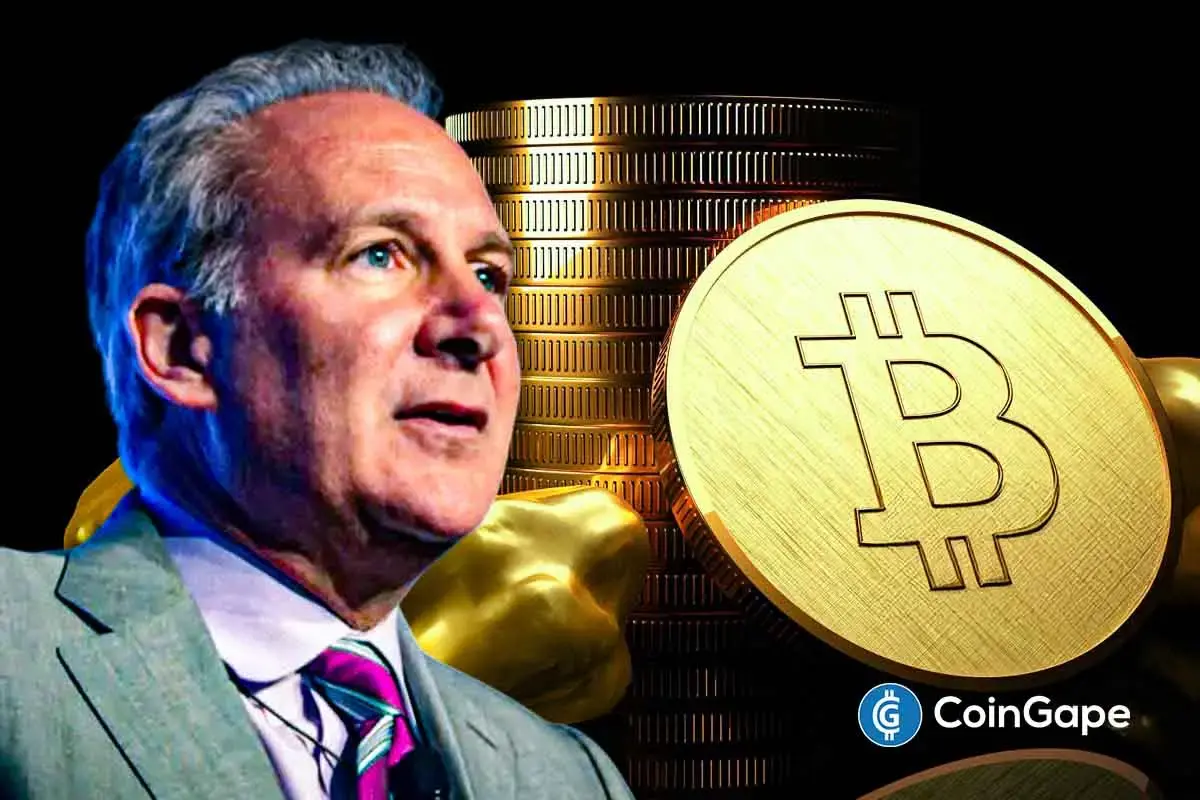Peter Schiff, an economist and critic of U.S. monetary policy, recently expressed his concerns about stablecoins and their role in securing the dollar’s dominance.
In a series of X posts, Peter Schiff argued that stablecoins are unlikely to preserve the U.S. dollar’s role as the world’s reserve currency. He further emphasized that stablecoins’ primary function will remain in crypto trading, rather than in broader economic applications.
Peter Schiff Questions Stablecoin Stableness
Peter Schiff believes that stablecoins, which are digital currencies pegged to the U.S. dollar, will not play a key role in securing the future of the dollar.
In his statements, he pointed out that the primary use of stablecoins is in cryptocurrency trading rather than as a mechanism for broader economic transactions. Peter Schiff also warned that rising U.S. federal budget deficits and increasing inflation would reduce demand for non-interest-bearing, dollar-pegged stablecoins.
Peter Schiff’s remarks followed concerns about the declining purchasing power of the U.S. dollar in the face of expanding national debt. According to Schiff, as the government’s fiscal situation worsens, demand for stablecoins as a store of value will diminish. He added that stablecoins are simply not equipped to serve as a stable and reliable store of wealth in an environment marked by high inflation and fiscal instability.
Stablecoins and Inflationary Concerns
Stablecoins have been hailed as a relatively stable answer to the volatility of cryptocurrencies such as Bitcoin. Nonetheless, the statements made by Schiff are part of a general doubt of their usefulness over the long term. As inflation is increasing, stablecoins might not provide returns and stability that investors are looking forward to.
Peter Schiff suggested that the lack of interest-bearing features in dollar-pegged stablecoins makes them an unattractive option as a hedge against inflation.
Concurrently, Peter Schiff not only expressed his opinions concerning stablecoins, but also commented on the monetary policy of the Federal Reserve and the attack made by President Donald Trump on Jerome Powell, Fed Chair.
According to Schiff, the Fed does not need to decrease interest rates but proposed that this progressive degradation and bullying by Trump, asking the Fed to take an action, would probably not be well received. Schiff indicated that the political pressure that Trump was putting on the Fed could incentivize the central bank to be less willing to act, as reducing rates would be viewed as a political decision since it was not economically necessary.
U.S. Government and Digital Asset Innovation
While Schiff is critical of stablecoins, other figures, such as Treasury Secretary Scott Bessent, have a more optimistic view of their potential role. Bessent recently stated that stablecoins could reinforce the U.S. dollar’s supremacy. He insisted that digital assets, including stablecoins, are among the most important global phenomena and should not be ignored by national governments.
According to Bessent, stablecoins could drive significant demand for U.S. Treasuries, as they are often backed by these government securities.
This demand could lower borrowing costs for the U.S. government and help address the national debt. Additionally, Bessent suggested that the passage of legislation like the GENIUS Act could promote the growth of the stablecoin ecosystem, potentially creating millions of new users in the dollar-based digital economy.
Investment disclaimer: The content reflects the author’s personal views and current market conditions. Please conduct your own research before investing in cryptocurrencies, as neither the author nor the publication is responsible for any financial losses.
Ad Disclosure: This site may feature sponsored content and affiliate links. All advertisements are clearly labeled, and ad partners have no influence over our editorial content.






✓ Share: